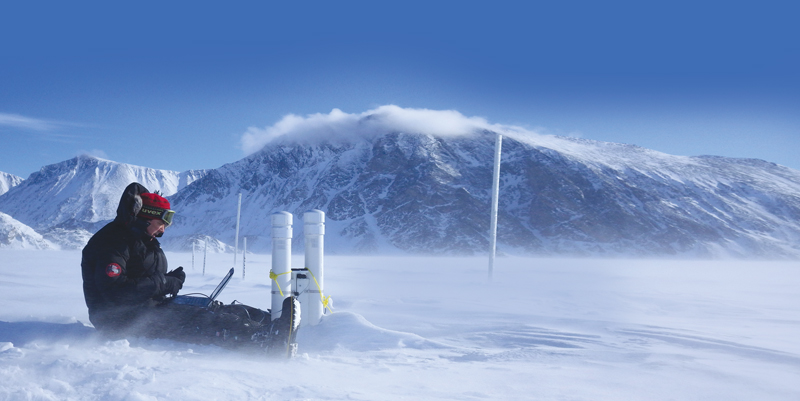Account Login
Don't have an account? Create One

Arctic sea ice is disappearing at an alarming, even life-threatening, rate for the people whose culture literally is the sea. Here’s how one social enterprise is working with Indigenous communities to try to stem the tide.
Rex Holwell is Inuk and grew up in Nain, about 1,169 km northwest of St. John’s. Inuk is the singular form of Inuit. Holwell remembers when the sea ice would start to freeze in early November. Now, at 46, he’s noticing the ice is forming closer to January.
“Sea ice is vital for feeding our people,” said Holwell, the manager of Nunatsiavut operations for SmartICE.
SmartICE is a non-profit community based social enterprise in northern Canada that is trying to empower Inuit communities facing the rapid changes of the climate crisis. They provide tools to measure ice and snow thickness so the Inuit can make more informed decisions when travelling on the ice.
Nunatsiavut is the Inuit name for the traditional region which is home to five Inuit communities: Nain, Hopedale, Postville, Makkovik and Rigolet.
Holwell says sea ice “is the Inuit culture” and people in Nain have relied on the ice for travel and food for years. The community of about 1,200 is isolated, and accessible only by plane and boat in the summer and in winter by plane and the ice highway. Travelling by skidoo is the affordable option.
The ice serves as the highway to traditional hunting and fishing grounds as well as a bridge to other areas to ensure they aren’t over-harvesting one place. Holwell explains oral stories are often passed along generationally, from experienced to new hunters as they travel on the ice. Experienced hunters will point out places to avoid, where a great spot was and share stories of a great catch. But thinning ice means traditional paths are becoming less reliable.
“Some Elders aren’t able to reliably predict that route anymore,” said Holwell.
Continue reading this story: click below to login/subscribe
Login or SubscribeComment policy
Comments are moderated to ensure thoughtful and respectful conversations. First and last names will appear with each submission; anonymous comments and pseudonyms will not be permitted.
By submitting a comment, you accept that Atlantic Business Magazine has the right to reproduce and publish that comment in whole or in part, in any manner it chooses. Publication of a comment does not constitute endorsement of that comment. We reserve the right to close comments at any time.
Cancel